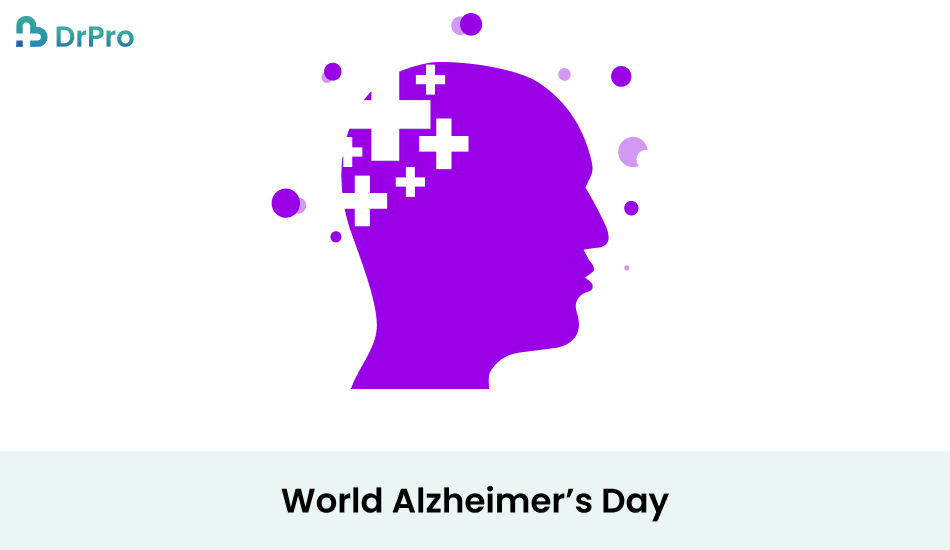What is Alzheimer’s Disease?
It is a neurological ailment that causes deterioration of the brain and impairs the individual’s memory, learning ability, and other behaviors. Alzheimer’s disease is the most prevalent type of dementia that can occur in elderly people but can manifest in young persons as well. Alzheimer’s disease reduces the individual’s capacity to think, remember, and even perform simple tasks, and results in a complete incapacitation of the affected individual. Currently, there is no known treatment for Alzheimer’s disease but people can benefit from prevention, management, and treatment approaches that allow the control of the disease’s progression and increase the quality of the patient’s lives.
Symptoms of Alzheimer’s Disease
Alzheimer’s disease causes the development of several symptoms that target the individual’s psychological, physiological, and emotional well-being. By understanding these signs, the patients can ask for medical assistance, and their families will know the condition’s early signs.
1. Memory Loss
The general feature of Alzheimer’s disease is memory loss, and such symptoms are clear and first signs of the disease. Patients with the disease become slow to retain new information and start to forget what they talked about earlier or one’s own or other people’s birthdays, anniversaries, etc. They may also lose their memory and not be able to: They may even forget the names of their close friends and even forget the names of places they regularly visit, which causes a lot of confusion to both the affected person and his or her family members.
2. Difficulty Completing Familiar Tasks
People with Alzheimer’s can fail to carry out activities they have been conducting for many years on the same calendar. It can involve, for example, failure in the ability to prepare a familiar dish, difficulties in handling household appliances, or confusion resulting from the inability to follow steps in a simple sequence.
3. Decreased or Poor Judgment
The next typical sign of Alzheimer’s is poor judgment. This is because those affected may make decisions they do not normally make, for example, borrow a large amount of money, buy things he does not need, or fail to observe dangerous conditions on the road. This decrease in judgment capability is usually accompanied by the inability to assess situations, for example, in issues of budgets or crises.
4. Misplacing Things
Alzheimer’s sufferers often have problems with the placing of objects. This is not ordinary forgetfulness since people with Alzheimer’s can end up putting items that are used frequently in strange places Examples are putting a remote control in the fridge or shoes in the oven. These people may also have a problem tracing their movements in an attempt to locate an object that was misplaced.
5. Changes in Mood, Personality, or Behavior
The effects of Alzheimer’s disease include fluctuations in mood and personality, ranging from normal to impulsive and aggressive behavior. Old self-driven people may become asocial, have anxiety, or even develop depression. Other behavioral changes include increased restlessness, increased irritability as well as being suspicious of other people as the disease advances.
6. Movement Difficulties
The later stages of the development of Alzheimer’s disease might involve problems with movement as a person may have trouble with walking or any other voluntary movement. This may result in a slower gait, muscle rigidity, or increased propensity to fall from balance. Therefore, such a patient may be impaired in his or her ability to move or transfer in the bed or from the bed to a chair or a wheelchair.
7. Problems with the Sense of Smell
Several studies have found that people with Alzheimer’s disease may have a poor feeling of smell. Individuals with this condition in the initial stage of the disease may also find that they are unable to identify some odors or may be completely unable to smell at all. This perhaps could be one of the warning signs that tell of the disease.
8. Wandering and Getting Lost
It also affects memory and spatial orientation – Alzheimer’s patients may become confused and wander off, or get lost within a familiar environment. This could be very dangerous for them particularly where they find it hard to recall their location or how to get back home.
9. Trouble Handling Money and Paying Bills
Alzheimer’s affects a person’s ability to manage money and personal funds making it quite challenging as time progresses. They may fail to remember when a certain bill is due, fail to pay for it, or even make a wrong financial decision. This may pose the individual to certain financial hardship and the vulnerability of exploitation.
10. Repeating Questions
One of the other manifestations of Alzheimer’s disease is stereotypy, in other words, constant repetition of the same action, for example, repeated questions. Sometimes the individual may forget that he or she has posed the question or may not recall the answer that he or she was just given a few minutes ago. These recurring actions can be quite infuriating to the carers while being a consequence of the weakening brain function in elderly patients.
When Can Alzheimer’s Begin?
Alzheimer’s disease mainly affects the elderly with the population most at risk being those aged 65 and above. The symptoms are not exclusive to the elderly or senior citizens only Nevertheless. Symptomatic Alzheimer’s may become manifest in people in their 30s, 40s, or 50s and is referred to as early-onset Alzheimer’s. However, the cases of the early onset are less frequent, but still very dangerous because the symptoms begin during the period of the most productive years.
Alzheimer’s is not yet determined but it has many factors contributing to it: age, genetics, and environment. The probability of getting Alzheimer’s rises persistently with age, and even at the age of 65 and above, the risk is very high, and the risk doubles with every five-year difference.
How to Avoid Alzheimer’s: Steps for Prevention
Unfortunately, the opportunity to stop Alzheimer’s disease today is still being discussed, but there is a list of measures that the patient can take to reduce the likelihood of its occurrence. Here are steps that individuals can take to improve brain health and potentially reduce the chances of Alzheimer’s: Here are steps that individuals can take to improve brain health and potentially reduce the chances of Alzheimer’s:
1. Prevent and Manage High Blood Pressure
There is considerable evidence that shows that the heart and the brain are interconnected such that the health of the heart has a direct bearing on the health of the brain. Hypertension affects blood vessels in the brain in a negative way increasing the likelihood of Alzheimer’s and deterioration of cognitive abilities. Controlling blood pressure through proper diet, regular exercise, and the use of anti-hypertensive in case of high blood pressure is important in protecting the brain.
2. Manage Blood Sugar
Some of the risk factors for diabetes and Alzheimer’s disease are the same. Most people who have type 2 diabetes either do not control their blood sugar levels well or have poorly regulated sugar levels, which can otherwise jeopardize blood vessel health besides adding more proteins that are toxic to the brain. Being careful with the blood sugar level, following a diet, and exercising may help decrease not only diabetes but also Alzheimer’s risk.
3. Maintain a Healthy Weight
This is because obesity leads to cardiovascular diseases, and inflammation and all these are known to have adverse effects on the brain and lead to Alzheimer’s disease. This means that one has to ensure that they work out and eat the right foods when eating so that they do not end up facing such problems in old age.
4. Be Physically Active
This is the reason why, physical activity is considered one of the best practices for a healthy brain. Exercise enhances the supply of blood to the brain, promotes the development of brain cells, and decreases the probability of getting diseases that cause Alzheimer’s such as heart disease and diabetes. Ideally, one should be doing moderate forms of exercise like walking, swimming, or cycling, for not less than 150 minutes a week.
5. Quit Smoking
This is because; smoking causes inflammation and the constriction of blood vessels which in turn limits blood flow in the brain, leading to Alzheimer’s disease. It is highly recommended to quit smoking since it reduces the rate of cognitive deterioration and has general well-being benefits.
6. Avoid Excessive Drinking
Alcoholism has bad effects on the human body affects the brain and results in Alzheimer’s disease. Observation of moderate consumption of alcohol has been found to have positive effects on the brain and thus it is recommended that people should avoid alcohol consumption or consume it in moderate amounts. For most individuals, it is recommended that they should take a glass of wine, spirit, or beer in a day for women and two for men.
7. Prevent and Correct Hearing Loss
Acquired hearing impairment increases the risk of dementia, especially when the impairment occurs mid-life. Hearing issues must be attended to as they should be corrected from the early stages because if they are not corrected they lead to loneliness and are also known to cause a decrease in brainpower.
8. Get Enough Sleep
The brain needs to produce enough sleep to ensure the body Is functioning correctly. As you lay asleep at night the brain flushes out toxins that cause Alzheimer’s disease. Research indicates that inadequate sleep or sleep loss is associated with the development of Alzheimer’s disease thus the need to practice proper sleep behavior. Try to get between 7-9 hours of sleep each night and consult a doctor for sleep problems like insomnia or sleep apnea.
Managing Alzheimer’s Disease
Currently, no known treatment may cure this disease, however, several medications can ease the symptoms and make the patients’ lives more comfortable. These include medicines used to enhance the memory and learning ability temporarily, and those that deal with the behavior and the setting of the affected person. The stages at which the disease is detected matter a lot since the progression of the disease can be arrested to ensure that the patients remain dependent on themselves for as long as possible.
Caregiver Support
Alzheimer’s disease can take a lot out of a family and caretaker; both mentally, and physically. Caregivers should not avoid seeking help to care for the patients since they too have needs that need care. It is always helpful and advisable to find a support group or a professional who can help in handling these issues as well as in sharing different successful strategies in caregiving.
Conclusion
Alzheimer’s is a terrible disease that Courses Affects Everyone worldwide and claims millions of people’s lives. At the moment there is no known cure but it is preventable if one detects it early and takes continuous preventive measures towards their health. Just like any other disease, if the symptoms are identified, the factors that lead to its development are understood, and behavioral changes are made that would prevent the development of Alzheimer’s, this is very encouraging to patients and families. This means that no matter how we engage in managing diseases such as high blood pressure and diabetes, or in staying productive and socially active, it is possible to do a lot towards ensuring the protection of future cognition. With guidance from experts like DrPro, you can stay ahead in caring for yourself or loved ones, equipped with the knowledge needed to navigate Alzheimer’s with confidence.


